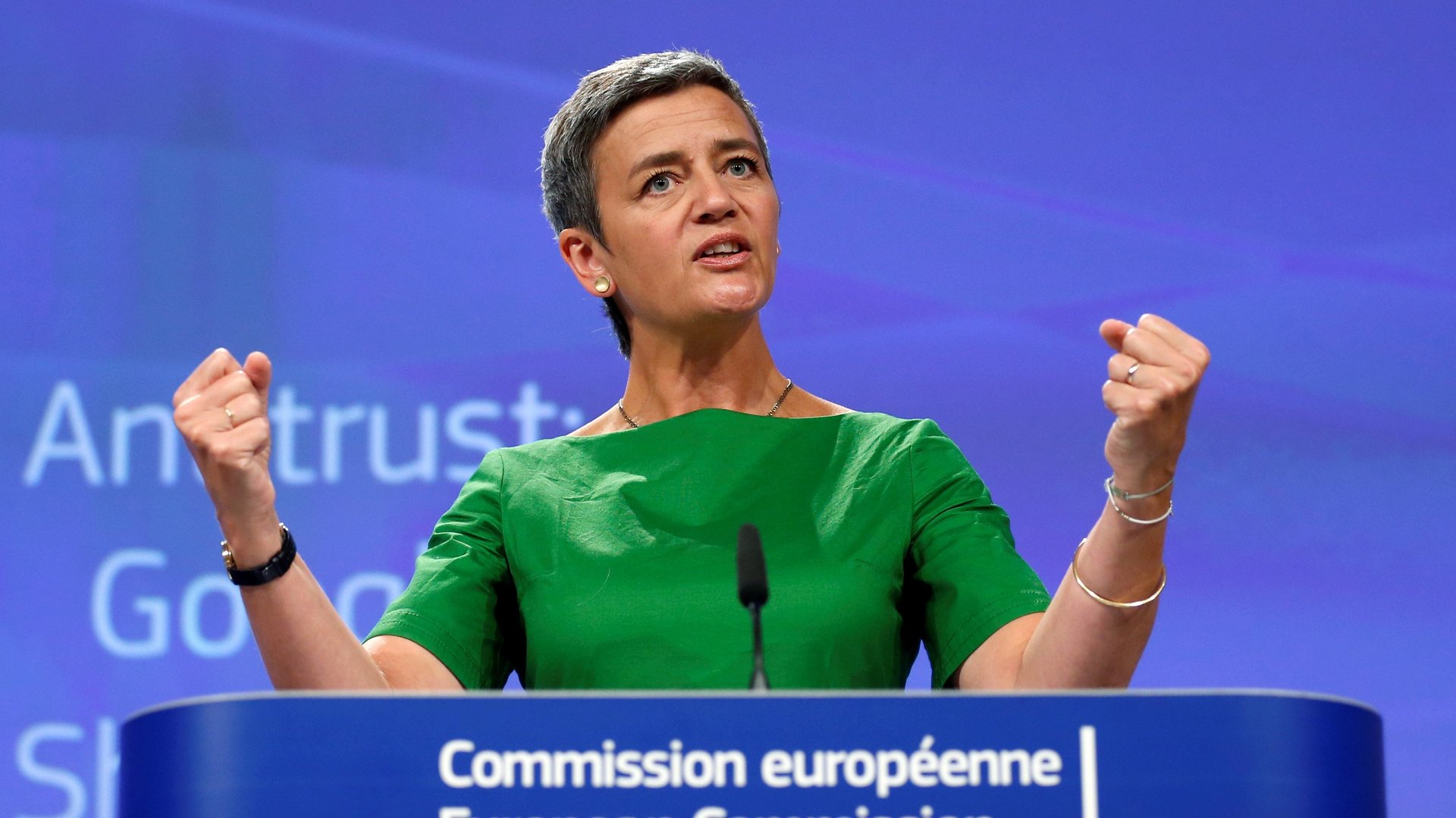How Europe is going after big tech when no one else is
The European Commission slapped Amazon with a €250 million ($294 million) tax penalty today, the latest in a string of high-profile decisions against the behemoths of global technology—which all happen to be American companies. Yet authorities in the US have remained passive in the face of these multi-billion dollar punishments, even as calls are growing domestically to regulate the tech giants. How does Europe do it?


The European Commission slapped Amazon with a €250 million ($294 million) tax penalty today, the latest in a string of high-profile decisions against the behemoths of global technology—which all happen to be American companies. Yet authorities in the US have remained passive in the face of these multi-billion dollar punishments, even as calls are growing domestically to regulate the tech giants. How does Europe do it?
On antitrust matters, Europe has a broader definition of competition than the US. Whereas the US views lower prices for goods and services as the crucial marker of consumer benefits, European law takes into consideration the abuse of pricing mechanisms to stifle fair competition. The US position has its roots in the theories of Robert Bork, who argued in the 1970s that market consolidation led to greater efficiencies and thus lower prices, leaving consumers better off. This argument was taken up by Ronald Reagan during his presidency, creating the conditions for the mega-mergers of the 1980s.
The European position is broader. Take Google Shopping. The search giant was fined €2.42 billion for illegally favoring its own price-comparison service over others. The fine was levied on the basis that Google abused its dominant position.
The commission noted that having a dominant position, in itself, is not illegal. What Google did was use its control over the search engine market to demote competitors into a sub-market, that of price-comparison services. “You will never get a free pass to stop competing on the merits, neither in the market you dominate nor in other markets,” the commission’s competition chief, Margrethe Vestager, told Google at the time.
In contrast, the Federal Trade Commission (FTC) investigated how Google ranked against its competitors in 2012 but ultimately decided not to pursue a case. That’s despite FTC staffers finding that Google demoted competitors in search results (paywall)—precisely the behavior the EU objected to.
FTC staffers recommended pursuing Google for anticompetitive behavior, but the FTC’s commissioners voted no. That’s because the FTC would have to prove that Google was not only dominant in one market, say search, but that it used that position to become dominant in another market, say price comparison. European regulators need only show that advantage—not necessarily market dominance—was conferred in the second market, New York University law professor Harry First told HuffPost.
The European commission under Vestager is showing it’s possible to take on the world’s biggest tech companies. Whether US regulators will change their tune remains to be seen.